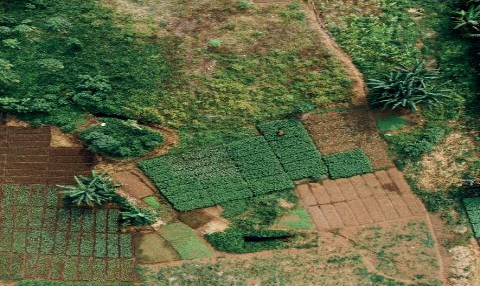The West African Science Service Centre for Climate Change and Adapted Land (WASCAL) on Friday charged West African leaders to take advantage of green hydrogen, without being left behind.
The Regional Coordinator for Renewable Energy and Green Hydrogen, WASCAL, Dr Bruno Korgo, made the call at the closing ceremony of a two-day Regional Capacity Building Workshop of ECOWAS Private Sector Actors on Green Hydrogen, in Lagos.
The event was organised by the ECOWAS Commission- the ECOWAS Centre for Renewable Energy and Energy Efficiency (ECREEE), WASCAL and the German Ministry of Education and Research.
According to Korgo, the ECOWAS region has a huge potential in terms of renewable energy including solar, wind, and hydro among others to mitigate its challenges, including climate change.
“I want to tell the government of West Africa that it’s time. Now, we have to move. We have to move because others have a well-defined strategy, that is, using green hydrogen.
“Other parts of the world are also seeing the opportunity we are talking about. And they are preparing themselves,” he said.
According to him, one of the advantages West Africa should not forget is the opportunity for export in green hydrogen.
“As everybody is committed to decarbonise their sectors, even those who don’t have the potential of producing green hydrogen-like Europe, they are obliged to export.
“Where are they going to get it? The closest region of Europe for export is West Africa.
“We have to take this advantage because it will generate revenue to help us build our infrastructure, build schools, hospitals for our populations.
“This is also something we must not neglect. But we have to start now, Korgo added.
Highlighting giant strides WASCAL and ECREEE had taken in the region, the coordinator said that green hydrogen could aid the production of fertiliser and boost agricultural products.
According to him, most West African countries are still importing huge quantities of fertilisers for agriculture, when they have the potential to produce locally and even export.
Korgo said: “We are the ones who should export fertilisers because we have the resources, we have water to produce hydrogen. We have renewable energy potential, it’s huge.”
Korgo said that using green hydrogen could help decarbonise refineries, cement and steel industries among others.
According to him, WASCAL is aware of this future of energy transition and the role that green hydrogen will play, hence the development of a set of initiatives.
“We have developed an international master programme to train West African students to be well-skilled in various aspects of green hydrogen technologies.
“They are trained in four countries in West Africa- Niger, Togo, Cote d’Ivoire, and Senegal.
“One part of the training is done in Germany to let them be in contact with the technologies and the infrastructure to make them complete in terms of training,” he said.
Korgo said that four Nigerians had graduated from the first batch and four in each country of the 15 ECOWAS countries.
“We are looking at how to increase the tracks of this training to add more specialities in the training.
“So, we are prospecting to create two more schools, one in Nigeria and one in Ghana,” he said.
Speaking, Dr Chinyere Almona, the Director-General/Chief Executive Officer at the Lagos Chamber of Commerce and Industry, said energy remained crucial to businesses, economic development and job creation.
Almona said it was important that the public sector engaged with the private sector “because the investment in green hydrogen will come from the private sector”.
“If we can find a way to have efficient power that will increase profitability for businesses, it will impact on the economy of the nation,” Almona said.
A participant, Mr Alpha Sy, Senior Investment Advisor, Hydroma, who commended the organisers, said that his firm had been developing green and white hydrogen in the region, especially in Mali and Senegal.
Sy said that hydroma was looking at Nigeria as a potential for production of green and white hydrogen.
Also, Mr Chigozie Nweke-Eze, the Chief Executive Officer, of Integrated Africa Power (IAP), said that it was high time Nigeria and West Africa began deepening discussions in green hydrogen.
“It is very easy for Nigeria to take it up because the country has the manpower, skills and resources to produce this energy,” Nweke-Eze said.
Closing the workshop, Mr Temitope Dina, Assistant Director, of Federal Ministry of Power, who described the workshop as transformative, said that resources to produce green hydrogen were all over available in West Africa.
“Green hydrogen is clearly established as the game changer for the West African coast,” Dina said.
He urged various captains of industries to explore green hydrogen and produce at least five megawatts by the third quarter of 2025.
The workshop was attended by various players in the energy and transport sector among others.
NAN


